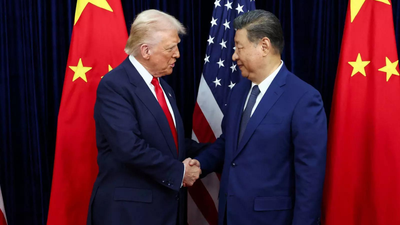Key Takeaways
- US aims to finalize rare earths deal with China by Thanksgiving
- China to suspend export curbs on critical minerals for one year
- US will roll back some tariffs, China to resume soybean purchases
- Agreement follows Trump-Xi meeting in South Korea last month
The United States expects to finalize a crucial rare earths agreement with China by Thanksgiving, marking significant progress in trade negotiations between the world’s two largest economies.
US Treasury Secretary Scott Bessent confirmed the timeline on Sunday, revealing that China has agreed to suspend export restrictions on critical minerals for one year. This breakthrough comes after Presidents Donald Trump and Xi Jinping met in South Korea last month.
Deal Details and Timeline
The tentative agreement, reached in late October, would restore rare earths trade to pre-April 4 conditions when China imposed export license requirements in response to Trump’s tariffs. Rare earth minerals are essential for automotive, electronics, and defense industries, with China dominating global production.
“We haven’t even finished the agreement, which we hope to have done by Thanksgiving,” Bessent stated on Fox News. He expressed confidence that “China will honor their agreements” made during the Trump-Xi meeting.
Broader Trade Understanding
The rare earths deal is part of a larger trade understanding that includes US tariff rollbacks on Chinese goods and China’s commitment to resume substantial soybean purchases. Beijing has pledged to buy at least 12 million metric tons of American soybeans this year and 25 million metric tons in 2026.
This addresses previous tensions where China had halted soybean imports in retaliation for US tariffs. “They made pawns out of our great soybean farmers,” Bessent noted, adding “But we believe we have remedied that.”
US Leverage and Safeguards
While expressing optimism about the deal, Bessent cautioned that Washington maintains “lots of levers” should Beijing fail to uphold its commitments. The agreement represents a significant de-escalation in the ongoing trade tensions between the two economic powers.




